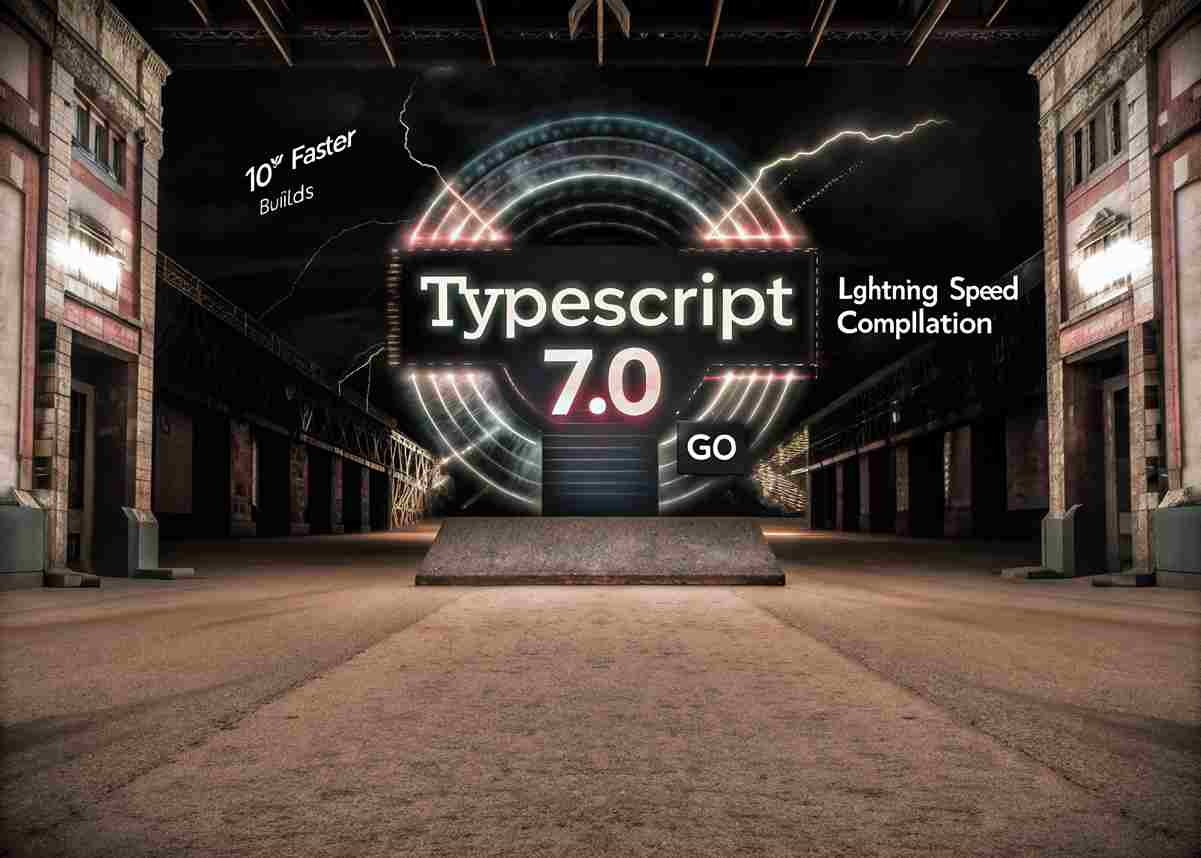If you are a web developer, you’ve probably spent some quality time with TypeScript. It’s become our trusty sidekick for bringing order and safety to our JavaScript projects, especially when things start getting big and complicated. Think of it as having a super-organized project manager for your code, making sure everything fits together perfectly and spotting potential problems before they cause chaos .
But let’s be real for a second. As our projects grow and grow, that TypeScript compiler – the tool that magically turns our typed code into plain old JavaScript – can sometimes feel like it’s moving at a snail’s pace. We’ve all been there, staring at the progress bar, especially when dealing with those sprawling codebases.
Well, buckle up, because some seriously cool news just dropped! The brilliant minds behind TypeScript at Microsoft have been cooking up something special, secretly known as “Project Corsa,” and it’s about to shake things up. They’re essentially rebuilding the engine of TypeScript – the compiler and all its helpers – using the Go programming language. The result? Get ready for a mind-blowing tenfold increase in speed and a much lighter load on your computer’s memory.
So, Why the Need for This Speed Boost?
TypeScript has become the backbone for tons of really big applications out there. Its knack for catching errors early and making our code more reliable is a huge win. But the original compiler, which was built using TypeScript itself and runs on JavaScript, starts to feel the strain when tackling truly massive projects. It’s a bit like trying to power a super-fast sports car with a slightly less efficient engine – it’ll get you there, but it could be so much quicker.
Go to the Rescue: Hello, 10x Performance!
The exciting news is that this new compiler, powered by Go, is showing some seriously impressive results. Microsoft’s own internal tests on real-world projects, including their very own Visual Studio Code, are demonstrating speed improvements of up to 10 times Just imagine your build times shrinking from what feels like an eternity to just a few blinks – that’s a massive boost to how productive we can be.
And the good news doesn’t stop at build times. The experience within our code editors is also getting a major upgrade. Loading those sprawling TypeScript projects is expected to be eight times faster, and the amount of memory it uses could be cut in half This translates to a much smoother, snappier feel when you’re coding, with features like auto-completion and error checking feeling almost instantaneous, even on the most gigantic projects
Peeking Under the Hood: Why Go?
So, what made the TypeScript team pick Go for this monumental task? It all comes down to performance and efficiency Go is a language that compiles directly into super-fast code that runs right on your computer’s hardware, unlike JavaScript which needs a runtime environment to work
Here’s a simplified look at why Go is a great fit:
- Born for Speed: Go code runs directly on your machine, making it naturally faster than code that needs to be interpreted or run within another program
- Smart Memory Handling: Go has a built-in system for managing memory automatically, which makes life easier for developers and helps prevent performance hiccups
- Concurrency Superstar: Go is fantastic at handling multiple tasks at the same time, which is perfect for a compiler that needs to process tons of files simultaneously
- Surprisingly Similar Structure: The way the current TypeScript compiler is organized actually has a lot in common with how Go code is structured, which made the whole porting process much smoother
How This Impacts Your Daily Grind
This huge leap in performance is going to have a real impact on how we work every day. Faster build times mean we get quicker feedback on the changes we make to our code. You’ll be able to see the results of your work almost instantly, leading to a much more fluid and productive coding experience. Say goodbye to those long coffee breaks while your project compiles!
Plus, with the language service in your editor feeling much more responsive, features like code completion and error highlighting will feel lightning fast, even in those sprawling projects. This will make navigating and understanding large amounts of code much easier.
The improved performance also opens up some exciting possibilities for more advanced developer tools down the line, maybe even smarter code refactoring and AI-powered help.
The Path to TypeScript 7.0
So, when can we get our hands on this speed demon? Microsoft has a plan in place. The current version of TypeScript will continue to evolve as the 6.x series. The Go-powered compiler will officially arrive as TypeScript 7.0 once it’s fully ready and has all the features we currently enjoy.
Here’s a sneak peek at the timeline:
- Mid-2025: Keep an eye out for a preview version that can handle the basics of checking your code for type errors from the command line. End of 2025: A fully functional version, capable of handling full project builds and providing the complete language service, is expected to be ready. The TypeScript team is really focused on making this transition as smooth as possible. Their goal is for TypeScript 7.0 to be a simple swap-in for most of us, meaning you shouldn’t have to rewrite your existing code. They’ll even keep both the 6.x and 7.x versions going for a while to give everyone plenty of time to adapt.
What’s the Word on the Street?
The initial buzz from the TypeScript community has been overwhelmingly positive . Developers are understandably excited about the prospect of significantly faster build times. While there have been some discussions about why Go was chosen over other languages like Rust or C#, the general feeling is that this move is going to be a huge win for the entire TypeScript ecosystem.
The Future is Looking Speedy!
The native port of the TypeScript compiler to Go is a massive step forward for the language, It promises to tackle a major frustration for developers working on large projects and open up a world of possibilities for better tooling and a smoother development experience. Get ready for a future where your TypeScript builds are lightning fast, allowing you to focus on what you love doing: building awesome applications. Keep your eyes peeled on the official TypeScript blog and GitHub repository for more news on this exciting project!


